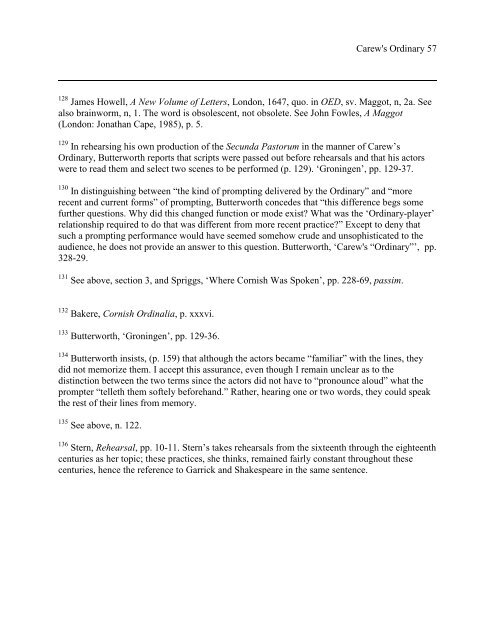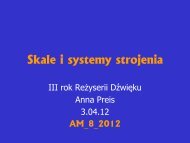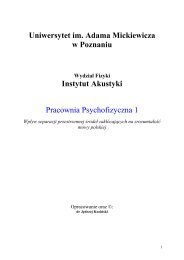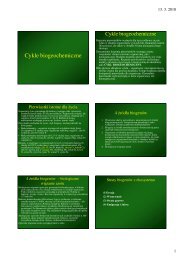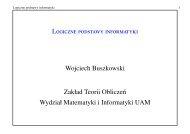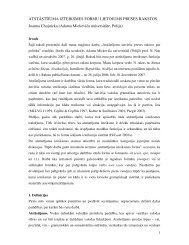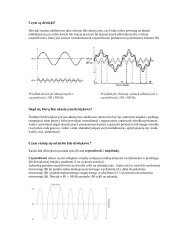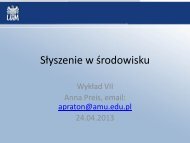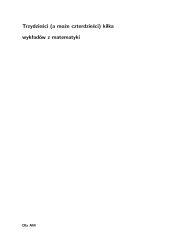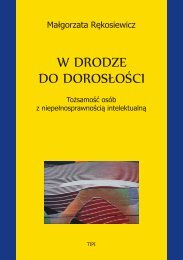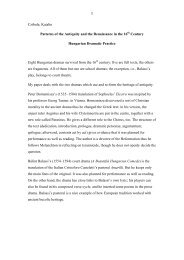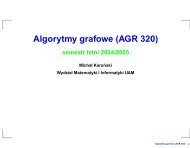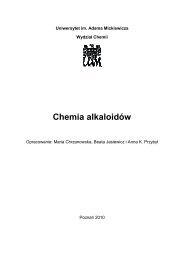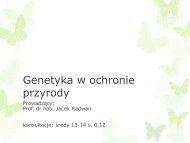Richard Carew. The Ordinary, The Ordinalia, and the Ordinary Actor ...
Richard Carew. The Ordinary, The Ordinalia, and the Ordinary Actor ...
Richard Carew. The Ordinary, The Ordinalia, and the Ordinary Actor ...
Create successful ePaper yourself
Turn your PDF publications into a flip-book with our unique Google optimized e-Paper software.
<strong>Carew</strong>'s <strong>Ordinary</strong> 57<br />
128 James Howell, A New Volume of Letters, London, 1647, quo. in OED, sv. Maggot, n, 2a. See<br />
also brainworm, n, 1. <strong>The</strong> word is obsolescent, not obsolete. See John Fowles, A Maggot<br />
(London: Jonathan Cape, 1985), p. 5.<br />
129 In rehearsing his own production of <strong>the</strong> Secunda Pastorum in <strong>the</strong> manner of <strong>Carew</strong>’s<br />
<strong>Ordinary</strong>, Butterworth reports that scripts were passed out before rehearsals <strong>and</strong> that his actors<br />
were to read <strong>the</strong>m <strong>and</strong> select two scenes to be performed (p. 129). ‘Groningen’, pp. 129-37.<br />
130 In distinguishing between “<strong>the</strong> kind of prompting delivered by <strong>the</strong> <strong>Ordinary</strong>” <strong>and</strong> “more<br />
recent <strong>and</strong> current forms” of prompting, Butterworth concedes that “this difference begs some<br />
fur<strong>the</strong>r questions. Why did this changed function or mode exist? What was <strong>the</strong> ‘<strong>Ordinary</strong>-player’<br />
relationship required to do that was different from more recent practice?” Except to deny that<br />
such a prompting performance would have seemed somehow crude <strong>and</strong> unsophisticated to <strong>the</strong><br />
audience, he does not provide an answer to this question. Butterworth, ‘<strong>Carew</strong>'s “<strong>Ordinary</strong>”’, pp.<br />
328-29.<br />
131 See above, section 3, <strong>and</strong> Spriggs, ‘Where Cornish Was Spoken’, pp. 228-69, passim.<br />
132 Bakere, Cornish <strong>Ordinalia</strong>, p. xxxvi.<br />
133 Butterworth, ‘Groningen’, pp. 129-36.<br />
134 Butterworth insists, (p. 159) that although <strong>the</strong> actors became “familiar” with <strong>the</strong> lines, <strong>the</strong>y<br />
did not memorize <strong>the</strong>m. I accept this assurance, even though I remain unclear as to <strong>the</strong><br />
distinction between <strong>the</strong> two terms since <strong>the</strong> actors did not have to “pronounce aloud” what <strong>the</strong><br />
prompter “telleth <strong>the</strong>m softely beforeh<strong>and</strong>.” Ra<strong>the</strong>r, hearing one or two words, <strong>the</strong>y could speak<br />
<strong>the</strong> rest of <strong>the</strong>ir lines from memory.<br />
135 See above, n. 122.<br />
136 Stern, Rehearsal, pp. 10-11. Stern’s takes rehearsals from <strong>the</strong> sixteenth through <strong>the</strong> eighteenth<br />
centuries as her topic; <strong>the</strong>se practices, she thinks, remained fairly constant throughout <strong>the</strong>se<br />
centuries, hence <strong>the</strong> reference to Garrick <strong>and</strong> Shakespeare in <strong>the</strong> same sentence.


